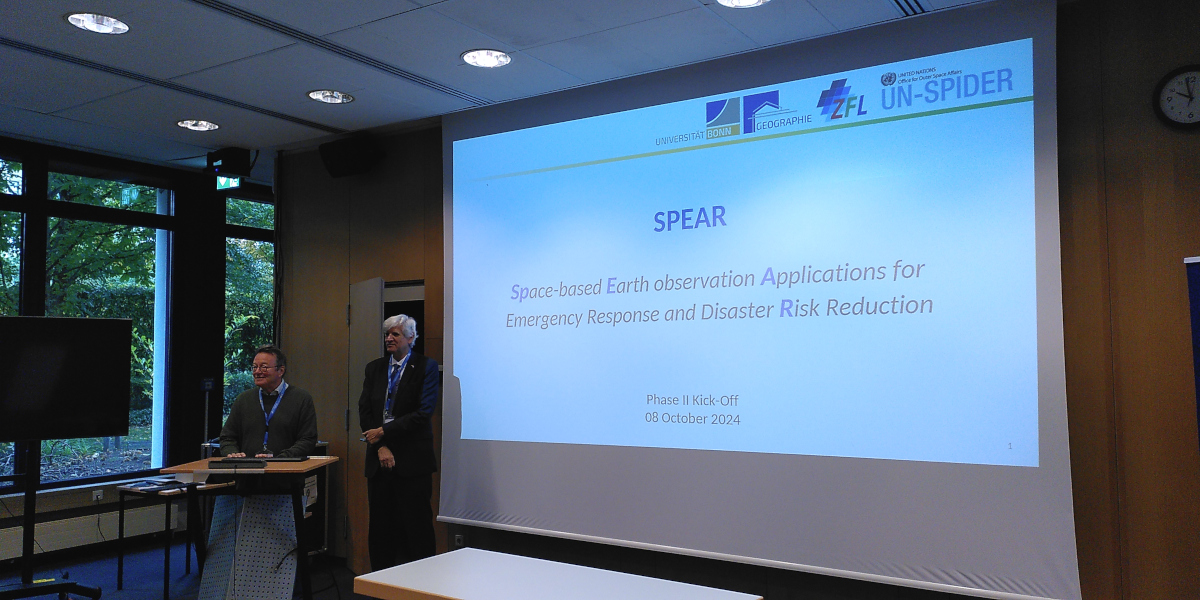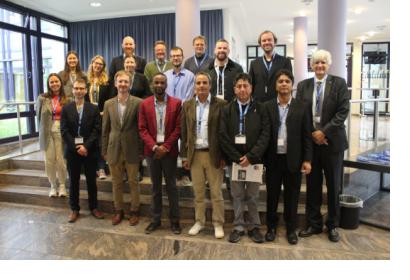In March 2015, 187 Members States of the United Nations launched the Sendai Framework for Disaster Risk Reduction 2015-2030. The framework called for the implementation of efforts at the local, national, regional, and international levels to confront the challenges posed by natural and anthropogenic hazards. Targets included a substantial reduction in global disaster risk mortality, the number of affected people, disaster-related economic losses, and impacts to critical infrastructure.
Recognizing the usefulness of space technologies in contributing to the implementation of the Sendai Framework for Disaster Risk Reduction, between June of 2019 and June 2024, the UN-SPIDER programme of the United Nations Office for Outer Space Affairs (UNOOSA) and the Center for Remote Sensing of Land Surfaces (ZFL) of the University of Bonn implemented the project entitled Spaceborne Earth Observation Applications for Emergency Response and Disaster Risk Reduction (SPEAR). The project benefitted from the generous support provided by the Space Agency at the German Aerospace Center (DLR).
Unfortunately, the COVID-19 pandemic, the continuous manifestation of natural hazards, the exacerbation of hydrometeorological hazards by climate change, and the lack of sound investments in disaster risk reduction have not allowed such Member States to achieve many of the proposed targets as reported in the Mid-Term Review of the Sendai Framework carried out by the United Nations Office for Disaster Risk Reduction (UNDRR) in May 2024.
Taking note of the need to continue facilitating the use of space-based data, information, products and services to address the challenges posed by natural and anthropogenic hazards, UN-SPIDER and ZFL are continuing to join forces to implement a second phase of this project (SPEAR II) between 2024 and 2029. The SPEAR II project, implemented thanks to the continued and generous support provided by the Space Agency at DLR, will allow UN-SPIDER and ZFL to organize international and regional conferences, expert meetings and workshops to bridge the gap between the disaster management and the space communities, to provide advisory support to African countries, to continue knowledge management efforts, and to continue raising awareness regarding the opportunities made available by the space community to confront these challenges.

To mark the launch of SPEAR II, ZFL and UN-SPIDER organized a kick-off meeting in the premises of ZFL in Bonn, Germany, on 08 October 2024. The kick-off meeting allowed both institutions to provide information on the project to participants from several German institutions, African, and Latin American countries. During the discussion session, participants highlighted efforts and activities which could enhance the outcomes included in SPEAR II.

